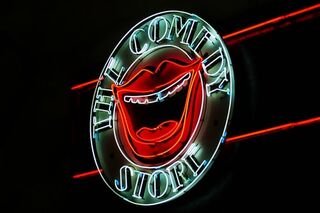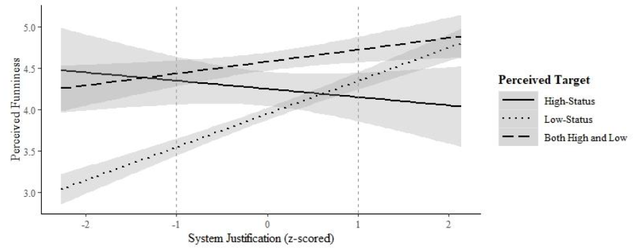Humor
That's [Not] Funny! Ideology and the Judgment of Jokes
New research shows how leftists and rightists judge jokes differently.
Posted September 13, 2020

In recent years, a number of high-profile comics have stopped playing gigs on university campuses, citing concerns over political correctness and a lack of life experience as reasons why. At the core of these concerns is that comedians who tell jokes that are "close to the bone" risk reprisal, and a subsequent loss of air time and, ultimately, earnings.
Commentators on this issue have suggested a potential ideological reason as to why some jokes (and their comedians) might be subject to close scrutiny. Those who make jokes about perceived lower-status groups (such as women, LGBT+ groups, black and minority ethnic individuals) have faced the most criticism, with these target groups being those chosen for greater protection by those on the political left. This is consistent with a broader societal "cancel culture" that has taken hold since 2018, whereby those acting counter to the ideological status quo in academic and liberal arts contexts have been removed from broadcasts or prevented from presenting.
Until now, there has been a lack of research into ideological judgments of stereotypical jokes. Some research has found that women who identify more strongly as feminists are more likely to judge jokes about men as being funnier than are women who do not identify with the feminist label. Stereotypical jokes about ethnic minorities have also been found to prime discriminatory judgments about them, such as perceptions of criminality in a mock criminal case.
A new study led by Dean Baltiansky under the supervision of noted social psychologists John Jost and Maureen Craig, titled "At Whose Expense? System Justification and the Appreciation of Stereotypical Humor Targeting High vs. Low-Status Groups," investigated whether people's system justification orientation was associated with their judgments of the funniness of jokes about high- and low-status groups.
System justification refers to the tendency to uphold social hierarchies and structures. On the standard measure of system justification, those scoring high will agree with statements such as "In general, I find society to be fair," while those scoring low are more likely to endorse statements such as "American society needs to be radically restructured." High levels of system justification are associated with a greater propensity to self-label as politically conservative, while low levels are linked to political liberalism.
The authors began with two simple hypotheses in line with system justification. First, those scoring high on this index were predicted to find jokes about low-status groups funnier than jokes about high-status groups. This is a motivated response designed to maintain social hierarchies, disparaging those at the bottom of society and defending those at the top. In contrast, those scoring low on system justification were predicted to find jokes about high-status groups funnier than those about low-status groups. This would also be a motivated response, but this time designed to bolster the position of low-status groups and bring down those at the top of the social ladder.
A total of 179 Americans took part in the study, hearing jokes from high-profile comedians about a range of high- and low-status groups. They were asked to judge how funny each joke was, as well as completing the system justification scale mentioned earlier.
Consistent with predictions, those scoring low on system justification judged jokes about high-status groups to be much funnier than jokes about low-status groups. In contrast, judgments of jokes about high- and low-status groups were similar among those scoring high on system justification (albeit with a small trend in the expected direction, where jokes about low-status groups were judged as being slightly funnier than jokes about high-status groups).

Although the results among low system justifiers were downplayed by the authors (consistent with their past writing on the differences between liberals and conservatives), these results do seem to suggest that stable ideological traits influence our perceptions of comedy in a way that is consistent with social critics. That is, those with a more liberal political outlook (as is typically the case among those scoring low in system justification) appear to differentiate between jokes about high- and low-status groups to a greater extent than political conservatives and find jokes about low-status groups to be significantly less funny.
Given the preponderance of political liberals in the arts, this has the potential to lead to comedians who make jokes about low-status groups either amending their sets to remove potentially offensive material or being "canceled" due to their material not being viewed as "funny." This is something to keep an eye on over the coming years to establish whether social commentary in the form of comedy becomes sanitized, and the trend of activist comedy continues unabated.
References
The paper "At Whose Expense? System Justification and the Appreciation of Stereotypical Humor Targeting High vs. Low Status Groups" by Dean Baltiansky, Maureen A. Craig, and John T. Jost is accepted for publication in the journal Humor: International Journal of Humor Research. A free preprint of the study is available at https://psyarxiv.com/7acbq.


